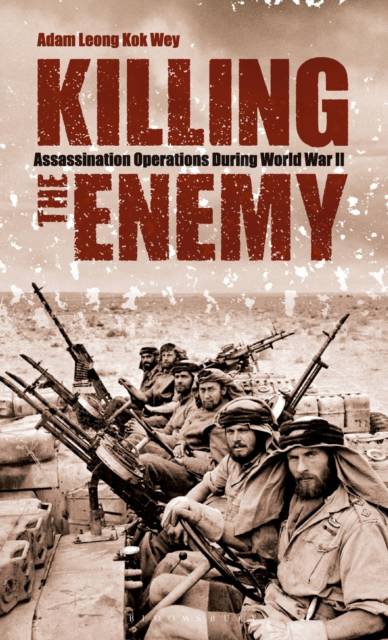
- Afhalen na 1 uur in een winkel met voorraad
- Gratis thuislevering in België vanaf € 30
- Ruim aanbod met 7 miljoen producten
- Afhalen na 1 uur in een winkel met voorraad
- Gratis thuislevering in België vanaf € 30
- Ruim aanbod met 7 miljoen producten
Zoeken
€ 296,95
+ 593 punten
Uitvoering
Omschrijving
During World War II, the British formed a secret division, the 'SOE' or Special Operations Executive, in order to support resistance organisations in occupied Europe. It also engaged in 'targeted killing' - the assassination of enemy political and military leaders. The unit is famous for equipping its agents with tools for use behind enemy lines, such as folding motorbikes, miniature submarines and suicide pills disguised as coat buttons. But its activities are now also gaining attention as a forerunner to today's 'extra-legal' killings of wartime enemies in foreign territory, for example through the use of unmanned drones. Adam Leong's work evaluates the effectiveness of political assassination in wartime using four examples: Heydrich's assassination in Prague (Operation Anthropoid); the daring kidnap of Major General Kreipe in Crete by Patrick Leigh Fermor; the failed attempt to assassinate Rommel, known as Operation Flipper; and the American assassination of General Yamamoto.
Specificaties
Betrokkenen
- Auteur(s):
- Uitgeverij:
Inhoud
- Aantal bladzijden:
- 272
- Taal:
- Engels
- Reeks:
Eigenschappen
- Productcode (EAN):
- 9781784530723
- Verschijningsdatum:
- 30/10/2015
- Uitvoering:
- Hardcover
- Formaat:
- Genaaid
- Afmetingen:
- 137 mm x 218 mm
- Gewicht:
- 453 g

Alleen bij Standaard Boekhandel
+ 593 punten op je klantenkaart van Standaard Boekhandel
Beoordelingen
We publiceren alleen reviews die voldoen aan de voorwaarden voor reviews. Bekijk onze voorwaarden voor reviews.











